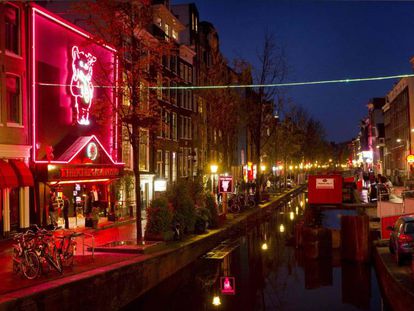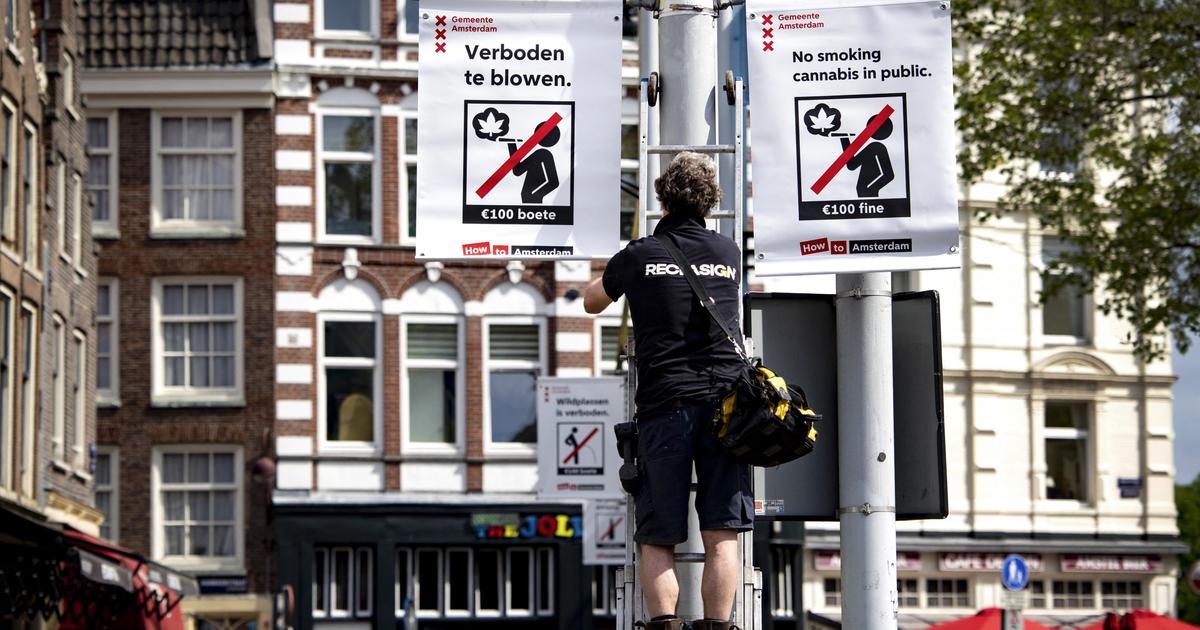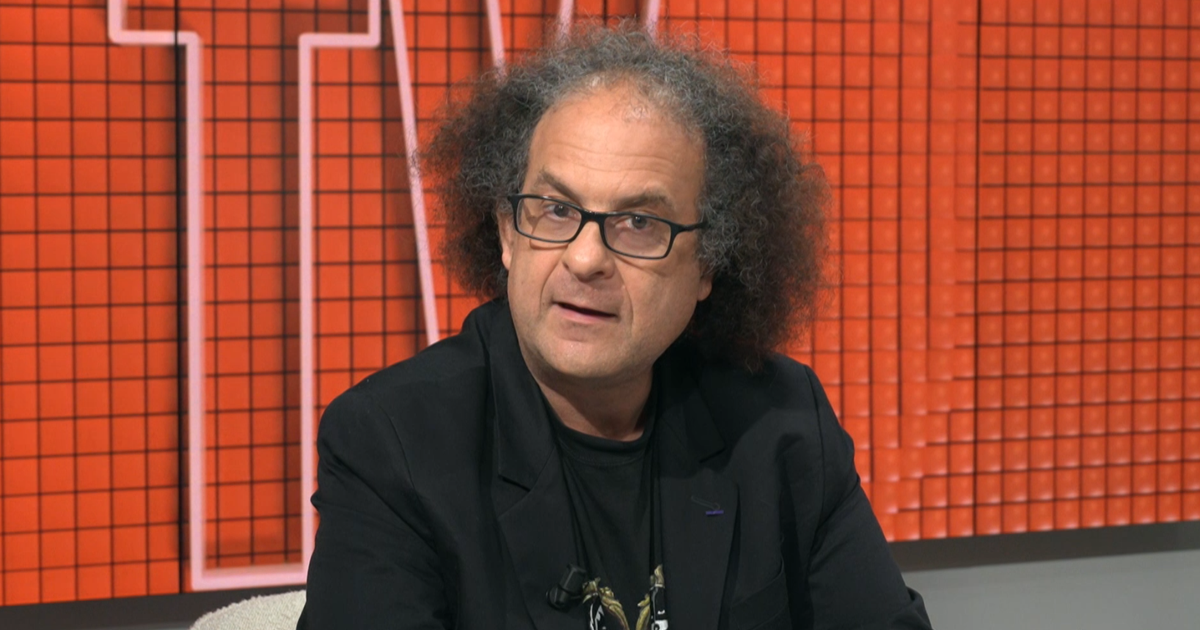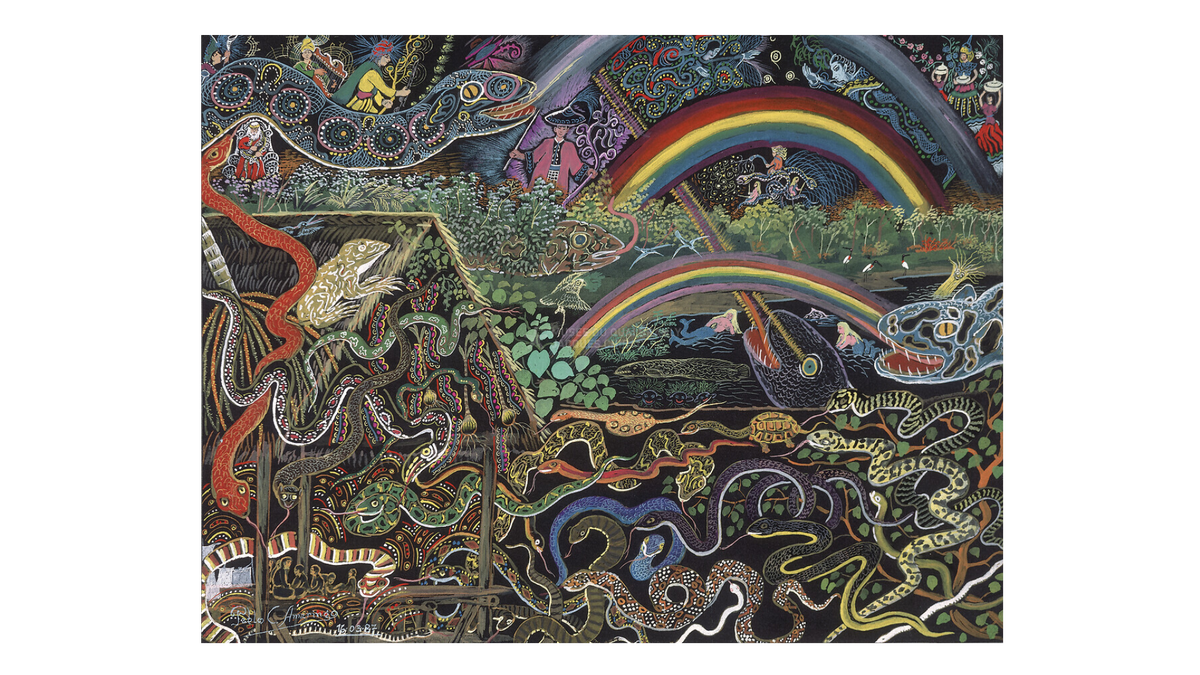With 22 million tourists registered in 2019, and the same figure calculated for 2024, Amsterdam tries to maintain a balance between the flow of visitors and the quality of life in a city of 880,000 inhabitants.
The City Council wishes to maintain its reputation as an open city, but has put the brakes on the commercial exploitation of this concept.
To this end, it has launched a campaign aimed at tourists who are attracted only by the nightlife, the tolerance for soft drugs and the windows of the Red Light District dedicated to prostitution, legalized in the year 2000. In its first phase, the initiative It is aimed at British men between the ages of 18 and 35, who are discouraged from staying with a strong motto: Stay Away
(do not come near, in English).
More information
The future erotic center of Amsterdam that collides with the European Medicines Agency
The municipal plan includes the brake on bachelor parties and organized walks from bar to bar;
restrict canal cruises;
a more balanced distribution of urban tourism;
bringing forward the closing time of entertainment venues in some neighborhoods and the ban on smoking hashish in several downtown streets.
It is a broad set of measures that will be opened to other nationalities, but, for now, it warns that British citizens looking for "a cheap hotel, go out for drinks and celebrate a bachelor party like all horizons" are not welcome.
Nearly half a million tourists from the United Kingdom visited the Netherlands in the third quarter of 2022, according to the Statistics service, and Jerina van Heck, spokesperson for the Amsterdam City Council, explains that everyone has their doors open.
No distinctions.
In an email she points out, however, the following: "The notion of freedom has been commercialized in recent years, and some companies misuse the image of the city to sell it as a place of unlimited possibilities."
This type of tourism, as well as the offers designed to attract them, "are not considered desirable by the municipal headquarters."
The biggest nuisances tend to be concentrated in the Red Light District, located in the heart of the city.
With narrow sidewalks and canals, the City Council has spent years trying to reduce the crowds that disturb the lives of some 5,000 residents.
It collides, however, with the pull of an environment that has multiple bars, restaurants, casinos and game rooms, in addition to the famous large windows that give it its color.
Without forgetting the fact that the tourist guides highlight the hashish shops and the windows dedicated to prostitution.
Opposite reaction to that desired by the campaign
Jerina van Heck repeats that the campaign has only just begun and they are not going to stick to a specific country, "but the British are a widely represented group in nightlife and cause above average disturbances in the capital."
The problem is that Amsterdam often tops the list of preferred destinations from the UK for those who want to get the most out of a short stay.
Specializing in bachelor parties for groups, The Stag Company is one of the British firms that has been organizing this type of trip inside and outside the country for 20 years.
Tom Bourlet, their head of marketing, says over the phone that the Dutch municipal campaign has had the opposite effect for them.
Released at the end of March, it states the following: “In the last week, search traffic to our website was up 13,279% compared to the previous seven days.
In the same period, bookings increased by 403%.
On the other hand, Amsterdam, which was ranked 12th in February among the most popular places, rose to sixth place in March.
This April it has risen to first place”.
Bourlet admits that, generally speaking, there is an element of truth in the critique of bachelor parties, but he qualifies:
"I think we are stigmatized because it is a minority that misrepresents the rest."
In addition, it seems an easy stereotype to say that these groups of Britons focus on the Red Light District.
“It appears on our lists behind activities like a visit to the Heineken brewery, going
go-karting
[getting into a small single-seater car], a private boat tour of the canals or playing bubble soccer.”
The Consistory campaign includes two videos.
The first presents an episode derived from the use of drugs given the permissiveness, not legalization, of the consumption of hashish.
The protagonist is a young man who is collapsed on a public bench.
An ambulance takes him to the emergency room and he ends up in a hospital room with an IV drip in his arm.
Meanwhile, some large subtitles remind us of the mistake of traveling to Amsterdam for this.
In the other recording, a staggering man is stopped by the police in an alleyway.
Once at the police station, he opens a file, they take his fingerprints and he spends the night in jail.
In his case, the fine is 140 euros.
The warning is identical for both: stay away.
Stag Web is another British company in the goodbye to bachelorhood field.
He's been organizing group outings since 1999, nationally and abroad, and Tom Probert, his PR, agrees with his colleague on the portrait of troublemakers.
He assures that "they are a minority among the thousands of people who go to these parties."
According to his data, since the pandemic, "Spain and Portugal have become very popular as destinations."
At the same time, demand from countries like Poland and cities like Budapest has fallen.
"The reason is the perception of closeness to the war in Ukraine."
Although he recalls that people cannot be legally prevented from traveling, he acknowledges that the British have "a certain reputation abroad, because of the football fans."
And he concludes:
“No one denies that this is a cultural issue that needs to change in the UK.
It goes beyond a specific age group”.
In the balance sought by the City Council of the Dutch capital, tourist visits should not exceed 20 million per year.
Hence, their plans include the promotion of a creative and sustainable offer "that attracts the visitor while contributing something positive to the city and its inhabitants."
But the pull of the Red Light District, which is a drag on the municipalities, is recognized by the mayor herself, Femke Halsema.
She has admitted that the sex business is part of Amsterdam, but she doesn't want the prostitutes to become an attraction.
“That is humiliating and unacceptable”, she has declared, and that is why she promotes a new idea.
It is the creation of a great erotic center outside the Red Light District.
One hundred of its 249 windows would be moved to the new premises, which would have spaces dedicated to restaurants, art and culture.
The idea has clashed with the European Medicines Agency, which moved to the Netherlands from London in 2019 due to Brexit.
Its new headquarters is located near the budding erotic center, as indicated by the plans presented this March.
The neighbors reject it in turn, and the trade fair and exhibitions (RAI), close to another of the possible locations of the complex, has already shown its concern.
The project is in the open discussion phase for interested parties.
Subscribe to continue reading
Read without limits
Keep reading
I'm already a subscriber









